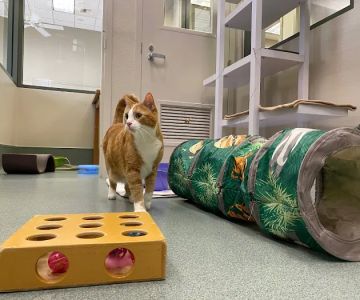Best Wet Food for Senior Cats: Essential Nutrition for Your Aging Feline
- 1. Importance of Wet Food for Senior Cats
- 2. Key Nutrients for Senior Cats
- 3. Best Wet Food Options for Senior Cats
- 4. How to Transition Your Senior Cat to Wet Food
- 5. When to Consult a Veterinarian for Your Senior Cat’s Diet
1. Importance of Wet Food for Senior Cats
As cats age, their nutritional needs change, and so does their ability to properly digest certain types of food. Senior cats, typically aged seven years or older, can benefit greatly from a wet food diet. Wet food provides higher moisture content than dry food, which is especially important for older cats who may be prone to dehydration due to reduced thirst drive or kidney problems.
Additionally, wet food is often easier for senior cats to chew and digest, especially if they have dental issues or a decrease in appetite. It is an excellent option for providing them with essential nutrients in a palatable and easily consumable form.
2. Key Nutrients for Senior Cats
Senior cats have specific nutritional needs to maintain their health and well-being. Here are the key nutrients to look for in the best wet food for senior cats:
Protein
Protein is essential for maintaining muscle mass and overall health, but senior cats may require a slightly different ratio of protein compared to younger cats. The best wet food for senior cats should provide a high-quality source of protein to support their muscle strength and energy levels.
Fiber
Fiber plays a crucial role in digestion and helps with weight management, which is important for senior cats who may be less active or have digestive issues. Look for wet food with balanced fiber content to help your cat maintain a healthy digestive system.
Omega-3 Fatty Acids
Omega-3 fatty acids, such as those found in fish oils, are beneficial for senior cats as they promote healthy skin and coat, and also support cognitive function and joint health, which are crucial as your cat ages.
Low Phosphorus and Sodium
Senior cats are more likely to develop kidney disease, so it’s important to choose wet food that contains lower levels of phosphorus and sodium to support kidney health and reduce the strain on these vital organs.
3. Best Wet Food Options for Senior Cats
Choosing the best wet food for senior cats can be overwhelming with so many options available. Here are some highly recommended choices based on their nutritional value and palatability for older cats:
1. Hill’s Science Diet Adult 7+ Youthful Vitality
This wet food is specifically formulated for senior cats, offering high-quality protein, easy-to-digest ingredients, and a balanced nutrient profile. It’s designed to support overall health, including cognitive function, and is great for picky eaters.
2. Royal Canin Aging 12+ Thin Slices in Gravy
Royal Canin is known for its age-specific formulas, and this one is tailored for cats over 12 years old. It contains essential nutrients for maintaining healthy kidney function and providing energy without compromising your cat’s digestive system.
3. Wellness CORE Grain-Free Senior
Wellness CORE’s grain-free formula is perfect for senior cats that have sensitivities to grains. It provides a high protein content with omega fatty acids, antioxidants, and fiber to promote digestion, healthy skin, and a shiny coat.
4. Iams ProActive Health Senior
Known for its high-quality protein and affordable price, Iams ProActive Health offers a balanced formula for senior cats. This wet food helps maintain muscle mass, provides omega fatty acids for coat health, and promotes overall vitality.
4. How to Transition Your Senior Cat to Wet Food
If your senior cat has been eating dry food, switching to wet food may take some time. Here are some tips to help with the transition:
Gradual Transition
Start by mixing a small amount of wet food with your cat’s usual dry food. Gradually increase the proportion of wet food while decreasing the dry food over the course of 7-10 days. This slow introduction helps your cat get used to the new texture and flavor without upsetting their stomach.
Mix with Broth
If your cat is hesitant to eat wet food, try adding a bit of low-sodium chicken broth to the food to enhance the flavor. You can also warm the food slightly to make it more appealing.
Offer Different Flavors and Textures
Senior cats may have more specific tastes, so it can be helpful to offer different flavors and textures of wet food to find what they like best. Some cats prefer pate, while others enjoy chunks in gravy.
5. When to Consult a Veterinarian for Your Senior Cat’s Diet
If your senior cat is not eating or showing signs of digestive upset, it’s important to consult a veterinarian. Additionally, if your cat has a pre-existing condition such as kidney disease, diabetes, or obesity, a specialized diet may be required to meet their unique nutritional needs.
Regular veterinary check-ups are essential for older cats, as their health needs change over time. Your veterinarian can recommend the best wet food options tailored to your cat’s specific health status.
For more advice on the best wet food for senior cats or to discuss your cat’s nutritional needs, visit Hidden Brook Veterinary for expert guidance and care.











